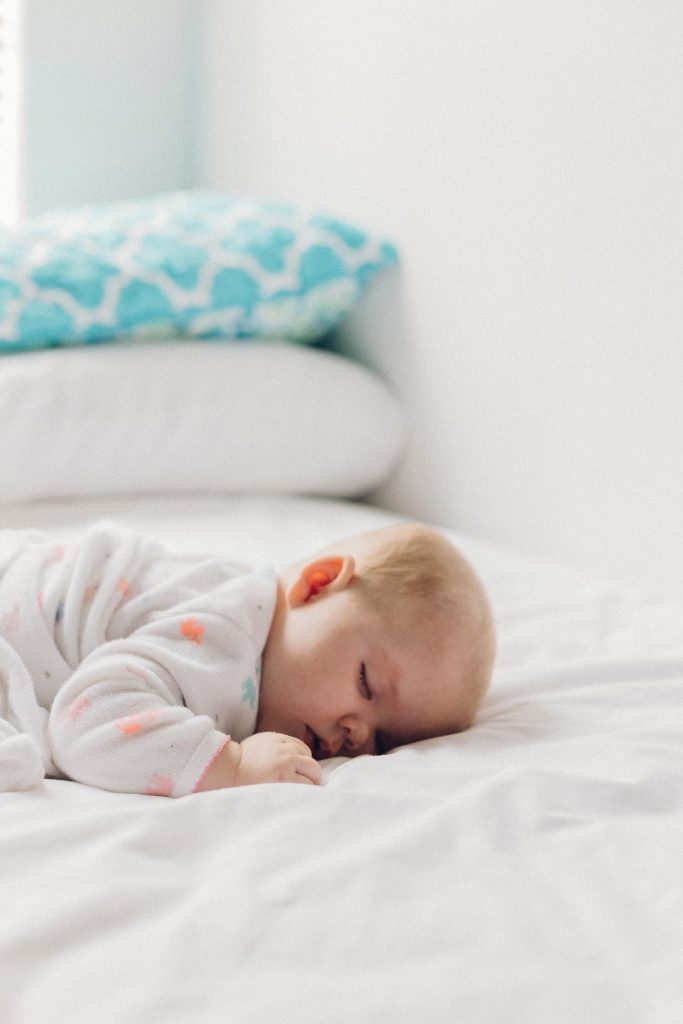Sleep – Are You And Your Family Getting Enough?
Why is sleep so important?
Sleep is a glorious thing; it refreshes recharges and rejuvenates and gives us strength and power for the day.
It also plays a vital role in our physical health, from directly impacting mental and physical development when we’re younger, to healing and repairing the heart and blood vessels as we get older. In fact, sleeping is as important as exercising and eating well. After all, not only do you allow your mind to switch off when you hit the pillow, which is vital for mental health and wellbeing, your organs and muscles also slow down, your metabolism significantly slows, and you give your body some much-needed time to recuperate.
But though we all sleep, many of us don’t do it that well…
Photo by Kevin Liang on Unsplash
How much sleep do we need?
The amount of sleep we need depends on our own, individual bodies, taking into account our gender and our age. But of course, there are exceptions.
For example, Donald Trump wildly claimed that he only needs three-four hours in bed each night, and similarly, Thomas Edison, the famous inventor, told the New York Times that he only got three to four hours of shut-eye each night. On the other end of the scale, you may know someone who needs a good 10 hours to feel chipper.
As a general rule, adults should get around seven to eight hours’ sleep per night. Because they’re growing so fast, babies, children, and teenagers require much more time in bed.
The easiest way is to break down a person’s sleep needs down is to look at it by age:
Newborns (0-3 months)
Your newborn bundle of joy is going to need a lot more sleep than you do – and actually, the myth that babies sleep all day is not far from the truth! Put your little one down and allow them to sleep 14-17 hours a day.
Photo by Dakota Corbin on Unsplash
Infants (4-11 months)
As your little ones get a bit older, they need slightly less sleep – but only slightly. The range for this age is 12-15 hours of sleep which can be broken up in the day for nap time, as well as throughout the evening.
Toddlers (1-2 years)
Oh, the terrible twos – the years where parents may actually shed
more tears than their kids! It’s probably a good thing that little ones this age need between 11 and 14 hours of sleep – that way you can put them down and hopefully get some rest yourself, well if you can get them to sleep after all the tantrums!
Small children (3-5)
Kids aged three-five want to be like you or their bigger brother or sister and stay up late, and actually, you can afford to give them a little more awake time. They do still need a lot of sleep though, around 10-13 hours of sleep, (the majority of which at night time and the remainder as a nap during the day).
Children (6-13)
Your little one is not so little anymore! They may be using more energy now, heading to school and running around, but actually, they can afford to sleep a little less. Either cut out the naps or push bedtime back a bit. Just make sure they get the full 9-11 hours each night and they’ll be set for the day.
Teens (14-17)
Teens actually need a lot more sleep than they think they do – which is why late nights and early wake-up calls for school don’t mix! Surprisingly, teens need 8-10 hours of shut-eye a night to be at their optimum health.
Young Adults (18-25) & Adults (26+)
The National Sleep Foundation found that both younger and older adults need between 7 and 9 hours, but that said, maximum and minimum variations still do occur.
Unfortunately, this is also the age range in which sleep problems or sleep disorders begin. You may feel sleepier earlier in the day, develop issues like sleep apnea, snoring, or restless legs syndrome, or just find that you have less deep restorative sleep. Exercising regularly and avoiding caffeine, alcohol, and technology like mobile phones or TV before bed can help you sleep better.
Common sleep disorders
If you, or if the whole family, are finding it hard to catch the zzz’s you need, it’s probably down to one of two reasons, (or both): 1) Your lifestyle is negatively affecting your sleep, 2) You are suffering from a sleep disorder.
Sleep disorders can be a result of your lifestyle or they can point to an underlying medical condition. The most common sleep disorders to be aware of are:
Insomnia: Insomnia is the inability for you to fall or stay asleep in the night and is characterized by choppy, disrupted sleep patterns.
Sleep apnea: Sleep apnea comes with symptoms like snoring, but the most common symptom is difficulty breathing during sleep which can lead to gasping. This is caused either by the brain not signaling the muscles in your throat to breathe or by the throat muscles being too relaxed to perform their proper functions.
Teeth grinding: A dull, constant headache or sore jaw when you wake up (or an irritated partner) is a telltale sign of this sleep disorder. Grinding your teeth in your sleep can lead to the deterioration of your teeth.
Snoring: This sleep disorder tends to cause more irritation to others than to you, but the actual issue itself can be a result of more serious issues like sleep apnea, so it’s worth taking a deeper look into the problem.
Restless leg syndrome: Also referred to as RLS, this disorder actually makes your legs feel like they just have to move the minute your head touches the pillow. This obviously makes it hard to fall asleep as the sensation only begins when your legs begin to relax.
Sleepwalking: This sleep disorder is more common in children but it can happen to adults too. Additionally, it’s not confined to walking but moving, speaking and even urinating.
7 Proven Tips to Sleep Better at Night
If you or your family suffer from any of the above sleep disorders, or you’re just finding it difficult to get a good night’s sleep, here are some top tips:
- Make a sleep schedule
Make a sleep schedule for you and your family and stick to it! By going to bed at the same time each night and waking at the same time each morning you will train your body to know when it is time to sleep and wake up. This will result in much better, restorative sleep.
- Avoid large meals before bed
Try to be careful with what you eat before bed. For example, if you know you are having a big meal, make sure to eat it several hours before sleeping. This is important because your metabolism slows down when it thinks it’s bedtime, making it much harder to process late night food and consequently leading to an upset stomach, heartburn and disrupted sleep.
- Avoid caffeine
You may not be going for late night coffee but try not to consume green tea, chocolate, ice cream and other products that have high amounts of caffeine right before bed.
- Take a bath
Try taking a bath or shower to relax your muscles and body and use it as a therapeutic time to relax your thoughts and your brain as well.
- Drink some tea
Try drinking a herbal tea that is naturally relaxing and calming. Chamomile, for example, is a natural remedy to reduce inflammation, decrease anxiety and treat insomnia, so it’s ideal for helping you get to sleep.
- Get rid of distractions
Turn the TV and your phone off at night and keep the noise and lights out of your bedroom. Do not allow yourself to be distracted in the night, instead, allow your mind to wind down and sleep.
- Create an ideal sleep environment
Make your room an ideal environment for sleep, with a cool temperature, natural rather than artificial lights, plants that are designed to promote better sleep, and a fan if you need it.







Pingback: 10 Ways Cycling Improves Your Body and Mind - Night Helper
Sadly, I do not get enough sleep. I exercise every day and eat healthy, but don’t sleep enough. I tend to get sick with a cold whenever I feel like I really haven’t had enough sleep. It is a reminder that I need to get more.